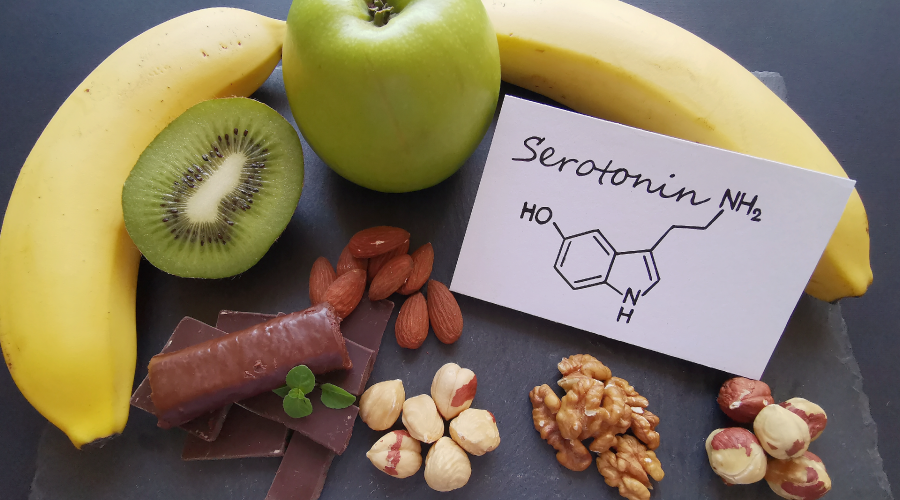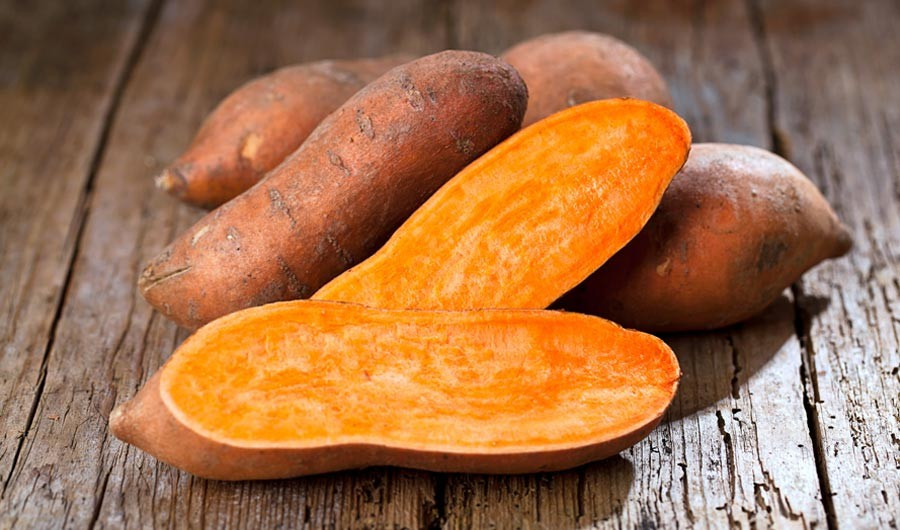8 Fall - Winter Foods That Help Reduce Depression
The changing of seasons can affect people's moods and emotions. Maintaining a healthy diet can help reduce symptoms of depression.
In fact, a poor diet and depression are often a vicious cycle. If a person has a poor diet, they are more likely to feel depressed than others. And when they feel more depressed, they are likely to eat more of those foods.
1. Does food affect depression?
Diet is a modifiable risk factor for depression. In other words, eating whole foods like fruits and vegetables, fish, nuts, beans, and the like can improve symptoms of this mood disorder for some people.
Exactly how important is the link between diet and depression? According to a 2021 study, people whose diets were high in soda, artificial fruit juices, and other poor-quality foods were 39% more likely to experience major depressive episodes than those whose diets contained more nutrient-dense foods.

The problem is that when people feel stressed and depressed, they tend to crave foods that are higher in sugar, salt, and fat. Unfortunately, the instant relief you get from those foods—especially those high in sugar—fades away quickly, which can then cause your mood to plummet.
Additionally, eating a lot of junk food can make it difficult for people to get enough essential nutrients the brain needs to function at its best, such as B vitamins, folate, and magnesium, which are vitamins and minerals that are inversely associated with depressive disorders.
2. Healthy eating promotes serotonin production, reducing depression
Foods that are rich in a variety of nutrients can make you feel much better. A healthy diet can also boost the production of neurotransmitters in the brain, chemical messengers that help regulate mood and emotions. According to research, one neurotransmitter that is affected by diet is serotonin, which promotes calmness and can help regulate mood.
Antioxidants prevent cell damage, and our bodies naturally produce molecules called free radicals, but they can lead to cell damage, aging, and other problems. Research shows that the brain is particularly at risk. While there is no way to completely prevent free radicals, you can lessen their destructive effects by eating foods rich in antioxidants, including: Beta-carotene: apricots, broccoli, cantaloupe, carrots, peaches, pumpkin, spinach, sweet potatoes. Vitamin C: blueberries, broccoli, grapefruit, kiwi, oranges, peppers, potatoes, strawberries, tomatoes. Vitamin E: margarine, nuts, vegetable oils, wheat germ.
3. Some healthy foods that are beneficial for people with depression

Brussels sprouts are high in folate.
Cruciferous vegetables are rich in folate, a B vitamin that helps regulate mood in the brain. According to a meta-analysis, studies have shown that B vitamins like folic acid, a form of folate, may benefit people with depression.
This nutrient is linked to brain function and our mood. Eating foods rich in folate on a daily basis can significantly improve how you feel.
Pomegranates are high in antioxidants.
Another great fall food to eat regularly is pomegranate, a fruit that is high in antioxidants. And it's especially easy to reap this benefit because drinking pomegranate juice can significantly increase your antioxidant intake.
In addition to its antioxidant content, pomegranates also contain polyphenols that have anti-inflammatory properties. Inflammation is also one of the underlying causes of depression, anxiety, and other mental health problems.
Pumpkin
Popular fall fruits contain magnesium, which has been linked to a reduced risk of depressive symptoms and disorders in a systematic review.
It's easy to incorporate this squash into your diet because it's so versatile and goes into so many dishes. Try adding pumpkin puree to soups, smoothies, and pasta sauces. Or simply snack on pumpkin seeds or toss them into salads.

Sweet potato
Sweet potatoes are rich in essential nutrients – especially vitamin C. One review study concluded that vitamin C may have several benefits for mental health, including reducing inflammation and preventing symptoms of depression.
Berries
Scientists are learning more about how the ecosystem of organisms that live in our gut – called the gut microbiome – affects our mental state. Evidence suggests that inflammation in the gut can lead to depressive symptoms in some patients. Improving the living conditions for good gut bacteria may help, and since these bacteria need fiber to thrive, eating fiber-rich foods is an important part of ensuring a healthy balance of bacteria in the gut.
Apple
Many nutritional studies have focused on the effects of apple consumption and its relationship to neuroprotective benefits. Apples are high in phytochemicals, which are great for preventing DNA damage, regulating hormones, and reducing oxidative damage. All of these are directly linked to supporting good mental health.
Turmeric
Because of its known healing properties, turmeric is considered a miracle spice for many health conditions, including reducing symptoms of depression. It also has powerful antioxidant and anti-inflammatory properties.
Cinnamon
Adding this mood-boosting spice to any food or drink can help stimulate the brain. It also helps regulate blood sugar, contributing to an overall stable mood. Cinnamon adds a warm flavor to teas, cider, oatmeal, breads, roasted fruits and vegetables…








